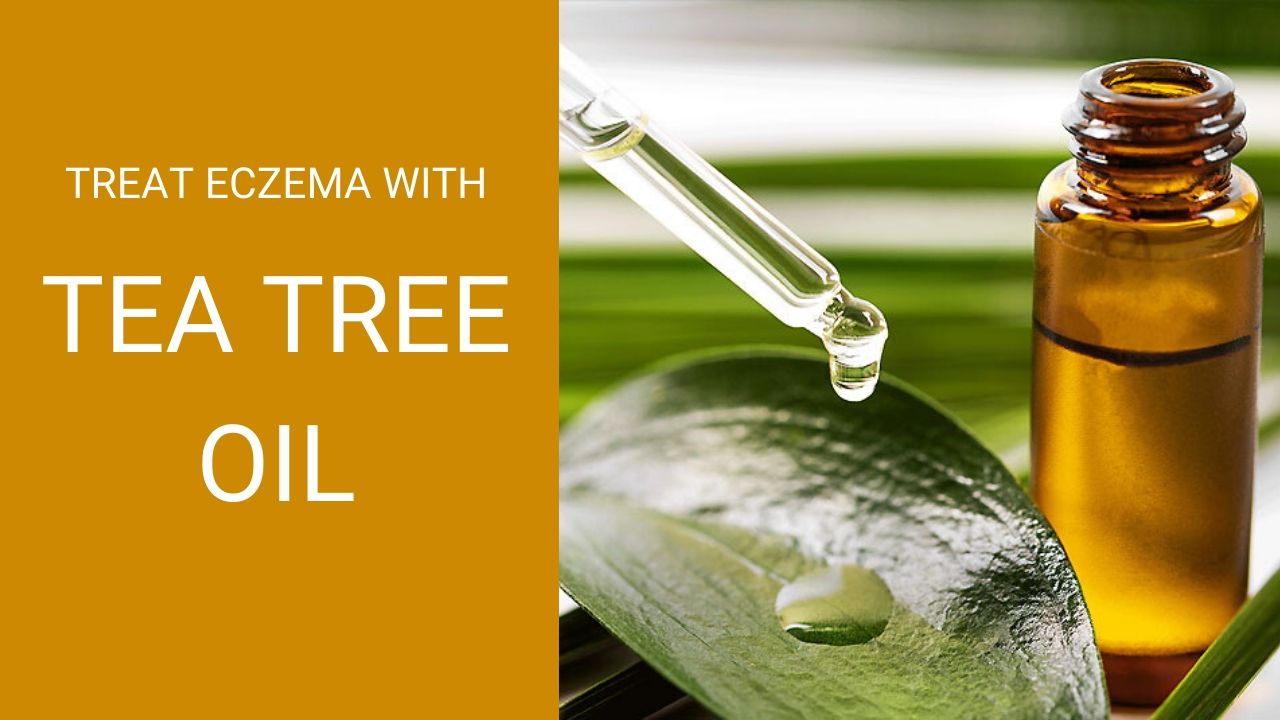Eczema is a skin condition often characterized by dry, itchy and inflamed patches of the skin. The condition develops in early childhood and is more prominent in people who have a family history of eczema. While there is no definite cure for eczema, there are natural remedies that help prevent future recurrence of eczema, as well as manage the discomfort when there are eczema flare-ups. One of the best natural treatments for skin ailment is the tea tree oil. People in many parts of the world are using tea tree oil to treat eczema symptoms.
There are different types of eczema that produce eczema symptoms and signs that range from crusty patches to oozing blisters in the skin. There is an increase in the people with eczema who often use tea tree oil to help relieve the eczema symptoms and if applied in a proper way, the diluted form of tea tree oil can be an effective alternative to various ointments and medications.
What is Tea Tree oil?
Tea tree oil is an essential oil derived from the plant Melaleuca alternifolia. The plant is native to Australia. There are an ample amount of benefits of the Melaleuca plant and its extracts.
The composition of a few ingredients in tea tree oil gives tea tree oil its medicinal properties. There are more than 100 ingredients like terpene hydrocarbons, sesquiterpenes, and monoterpenes that proves beneficial for the skin.
Not only this, there are many other home remedies in form of baths and oils which are useful such as Neem Oil For Eczema, essential oils for eczema, oat meal bath for eczema, bleach bath , baking soda bath , Epsom salt bath ,or apple cider vinegar bath for eczema can also help you.
Tea Tree Oil and Eczema:

Tea tree oil is usually used to treat skin conditions like acne, eczema, bug bites, pimples, bacterial or fungal infections. It turns out to be beneficial for skin conditions and helps in improving the skin ailments if used in the desired quantity. More than just an essential oil for eczema, tea tree oil helps in purifying the air to prevent allergens from worsening the eczema flare-ups.
Various properties of tea tree oil that could be beneficial for individuals suffering from eczema include:
- Anti-inflammatory: used to ease redness, swelling, and irritation.
- Antimicrobial and antifungal: used to keep away skin infection.
- Antifungal: used to restrict the activity of specific yeasts.
- Antiseptic: used to calm and soothe skin.
- Antioxidant: used to protect skin from damaging free radicals.
As per a study, tea tree oil was more effective in treating eczema than topical treatments like zinc oxide and clobetasone butyrate creams.
Benefits of tea tree oil for eczema:
- Helps reduce skin inflammation: Tea tree oil contains terpinen-4-ol that has anti-inflammatory properties, that help alleviate skin inflammation, redness, and irritation associated with eczema.
- Helps heal wounds: Tea tree oil is helpful for wound healing. The wounds may be a result of scratching of the itchy patches. According to an article published in The Journal of Alternative and Complementary Medicine, tea tree oil reduced healing times for people with wounds infected with Staphylococcus aureus.
- Fighting off viruses: The antiviral properties of tea tree oil helps kill unwanted bacteria. It can reduce the chances of any infection that is caused due to the eczema skin condition like itchiness, cracked skin or blistery patches.
- Relieves itching: Eczema causes itchy and flaky skin so applying tea tree oil on the scalp was effective in reducing the itch.
Apart from helping to treat the symptoms of eczema, tea tree oil also help:
- Cure dandruff
- Treat athlete’s foot and fungus
- Treat skin irritations
- Treat wounds
- Treat acne
How to Use Tea Tree Oil for Eczema
Using tea tree oil to help relieve the symptoms of eczema may require a few tips that can be helpful:
Check the quality of oil:
- Always use pure tea tree oil, as they are less likely to be contaminated by other ingredients.
- Purchase a good quality organic oil to get better results.
- Check reviews and do proper research to purchase oil.
Dilute with a carrier oil: Carrier oil includes
- olive oil
- coconut oil
- sunflower oil
- jojoba oil
- almond oil
- avocado oil
Further steps involve:
- Dilute tea tree oil to avoid any adverse effects on the skin. An ample amount of skincare products from face washes to moisturizers have tea tree oil in the diluted form.
- Mix a few drops of carrier oil (10 drops) like coconut oil or almond oil with a pure tea tree oil (1 drop) to get effective results.
Do a patch test:
- A patch test is always recommended before applying it directly to the skin. To proceed with a patch test, apply a small amount of tea tree oil to a small area on the skin and wait for 24 hours. If there is no reaction, it is likely safe to use.
- If tea tree oil is applied to the skin with eczema flares, do not wash it off. Let your skin absorb it like a cream.
- It is always recommended to check with their doctor before using tea tree oil if you are also undergoing other eczema treatments.
Use clean hands or cotton balls:
- Maximize tea tree oil’s cleansing and antiseptic magic on the skin by applying it with the cotton balls.
Treat Eczema with a tea tree oil Eczema recipes:
Tea tree oil eczema lotion:
Mix the following ingredients to create homemade eczema lotion:
- Tea tree oil (5 drops)
- Lavender oil (5 drops)
- Coconut oil (1 teaspoon)
How to use tea tree oil on your hands:
- Take a pea-sized amount of tea tree oil onto the backside of your hands and rub perfectly to blend into the skin.
- Let it absorb into your skin like a lotion.
How to use tea tree oil on your scalp:
Tea tree oil is helpful to treat the following:
- unclog hair follicles
- reduce hair loss
- nourish your roots
- Add 2 to 3 drops of undiluted tea tree oil to a quarter-sized amount shampoo you are using.
- After shampooing, rinse and condition your hair.
Risks and Side Effects:
According to the National Center for Complementary and Integrative Health, there are many people who are not allergic to tea tree oil or products like creams, lotions, and ointments made of tea tree oil. However, side effects are possible.
Side effects include:
- Skin irritation
- Itching
- Skin dryness
- Flaky skin
- Skin rash
- Redness
- Inflammation
A patch test is always recommended to ensure that it will not cause irritation. Always consider the risks when using essential oils, as some are harmful to children, pregnant women, and pets.
Precautions:
- Expecting and lactating mothers should use tea tree oil only under the supervision of their doctor.
- Tea tree oil is not suitable for oral use.
- Do NOT use it without consultation from your child’s pediatrician.
- Tea tree oil must never be used in the eyes or swallowed.
While there is no cure for eczema, tea tree oil when combined with other moisturizers and carrier oil may help improve eczema symptoms. It is always recommended to check with your doctor before using tea tree oil.





